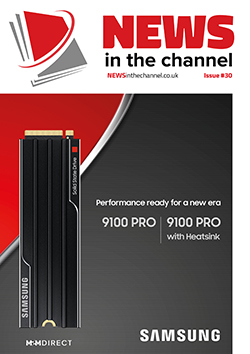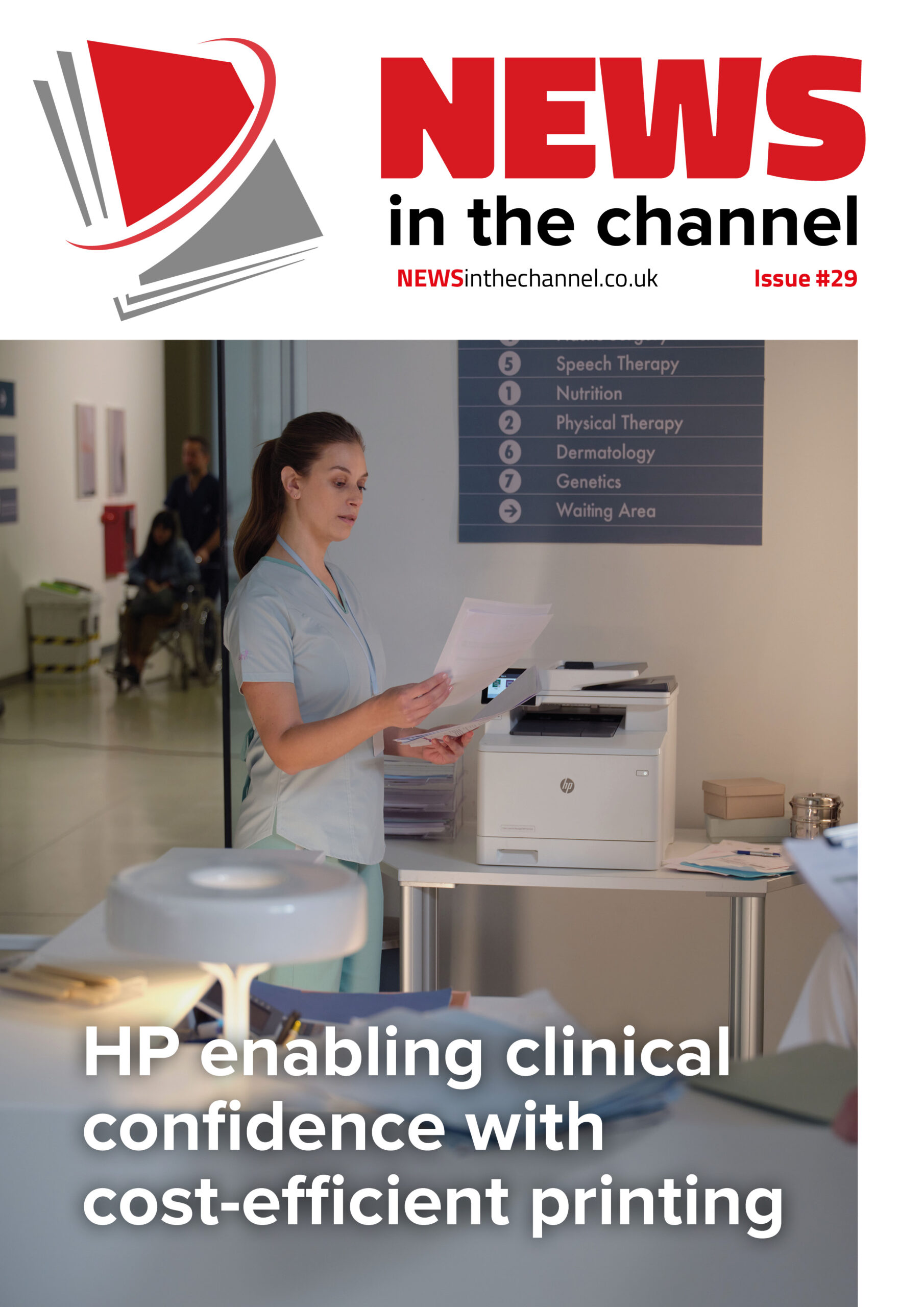One of 2024’s most significant technological developments was the rise of AI-enabled PCs. HP has been in the vanguard of AI technology, which is also pushing the boundaries within the print sector.
Last year was the year that artificial intelligence (AI) really started to come of age in the workplace, with a range of manufacturers bringing out AI-enabled devices. One of the companies at the forefront of this has been HP.
Here, Neil MacDonald, HP’s UK and Ireland senior channel director, talks about how HP is harnessing the power of AI in its PCs and its influence on printers too.
News in the Channel: What is HP’s range of AI PCs?
Neil MacDonald: HP currently has several AI PCs available in the market, including the OmniBook Ultra 14’’, OmniStudio X27 AiO, OmniBook X AI PC and EliteBook Ultra AI PC for business users.
The HP EliteBook Ultra, powered by the Snapdragon X Elite processor, delivers 45 trillion operations per second, enabling AI-driven creativity and productivity. With Copilot+ PC features, it enhances performance and collaboration through AI tools. The world’s thinnest AI PC offers 26-hour battery life with advanced security. Crafted from sustainable materials, it combines performance, mobility and durability for tech-savvy professionals on the go.
Q: Is demand for AI PCs growing currently? Is this across the board?
MacDonald: Both the demand and awareness for AI PC’s is growing, most notably with freelancers, creatives and IT professionals but we are seeing a slow uptake across the board. We expect to see this growth continue to accelerate as the AI PC market develops further and with the PC refresh cycle that will come with the upcoming move to Windows 11. Investing in AI PCs now is a great way of futureproofing your workforce to securely use AI and meet productivity demands.
Q: What benefits do AI PCs offer to customers over more traditional laptops?
MacDonald: Being technical for a moment, AI PCs are equipped with a neural processing unit (NPU) designed for AI and machine learning tasks. This enables them to handle complex computations more efficiently than traditional PCs, which rely only on the CPU and GPU. The integration of AI into PCs can have with a range of tasks, from real-time language translation, photo and video editing to face and object recognition.
The ultimate benefit is productivity; AI PCs will support the more repetitive mundane tasks people have to do in their work freeing up time for them to add value and be more productive.
Q: AI is still a developing technology – will there be more benefits of it to come and therefore is it something that should be invested in now?
MacDonald: Like any technology, yes AI is still developing. But that’s why we should be investing in it now. As demand grows, we learn more about applications and usability, allowing us to better tailor the technology to meet consumer needs. It’s also important for users to grow and learn with it, so they’re not left behind or missing out.
Q: How should resellers approach talks with customers about AI PCs – is the business case clear today? And is it worth the investment?
MacDonald: My main advice right now is to train and encourage colleagues to use the technology and become familiar with it. This is a generational opportunity and being able to advocate for the use of it will help bring this technology to life for so many users.
Q: Is AI also impacting on the printer market too? How are customer demands and expectations changing?
MacDonald: AI technology is accelerating the demand for printers with advanced scan to digital technology and security enhancements that AI delivers, of course these are just two examples, but there are many other use cases too.
Q: How is HP moving with that to provide cutting-edge technology?
MacDonald: In March 2024, HP announced a great addition to its SMB portfolio in the form of the HP Color LaserJet 3000 series. Featuring energy-efficient TerraJet toner, it offers sharp colours, faster print speeds and a compact design for growing businesses. It includes Wi-Fi 2 for reliable connectivity, industry-leading security, and the fastest duplex printing in its class. TerraJet technology provides 11% more vivid colours, 18% faster speeds, and reduces energy use and plastics, supporting sustainability goals.
Looking to the future, we have some exciting announcements in the pipeline, which will include innovative new print devices with integrated AI, in addition to software optimisation features.
Q: How do you see the printer market evolving over the next 12-18 months?
MacDonald: The printer market is likely to see several key developments driven by advancements in AI technology and the demand for more intuitive, personalised experiences. Based on HP’s recent initiatives, including the launch of HP Print AI, the industry is set to focus on making printing more seamless and intelligent. There will also likely be a greater emphasis on AI-driven solutions for commercial markets, with tools like HP Scan AI Enhanced streamlining document workflows. This will be particularly interesting to sectors that need to reduce manual tasks and enhance productivity, such as retail and construction.











